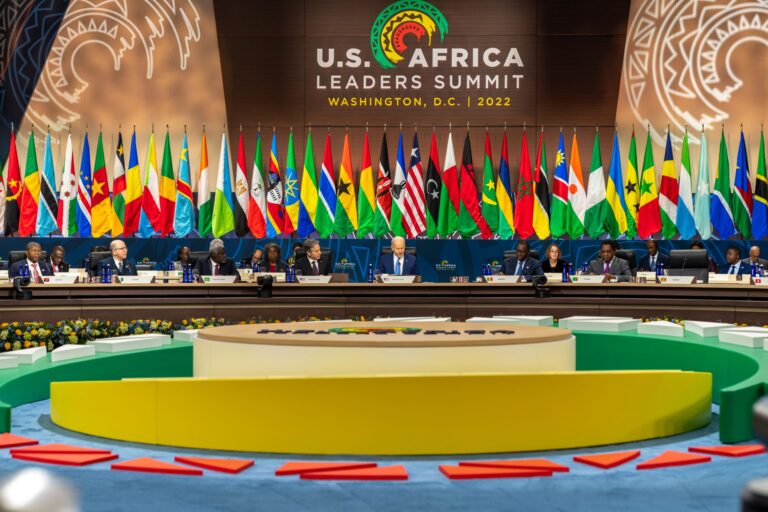Jackson Richman is a journalist and Today News Africa contributor based in Washington, District of Columbia. His work can be seen in Mediaite, The Washington Examiner, Jewish News Syndicate, and other news outlets.
In November 2021, the Biden administration imposed a temporary travel ban on eight African countries due to the Omicron variant. These countries included Botswana, Eswatini, Lesotho, Malawi, Mozambique, Namibia, South Africa, and Zimbabwe.
However, those countries ranged from having none of the variant to very few cases of it whereas other nations including Holland and Australia, neither of which did not face a travel ban from Washington due to Omicron, had a lot more. As Today News Africa’s Simon Ateba rightly said on Fox News in December 2021, if Donald Trump had enacted such a ban as president, he would have been called a racist.
While the United States has sought to further business ties with Sub-Saharan Africa, it has refused to combat Chinese influence in the region. Secretary of State Antony J. Blinken said last year that Washington “will not dictate Africa’s choices, neither should anyone else.”
It’s one thing to tell countries not to invest with a Free World member such as Canada. It’s another to push countries to not align themselves with a regime that is committing genocide, has no regard for international and economic norms, is blocking freedom of navigation in the South China Sea, and seeks to blackmail the world through its Belt and Road Initiative by taking over countries in exchange for providing infrastructure.
Even the August release of the White House’s policy toward Sub-Saharan Africa stated “that China sees the region as an important arena to challenge the rules-based international order, advance its own narrow commercial and geopolitical interests, undermine transparency and openness, and weaken U.S. relations with African peoples and governments.” The United States must have the following message for Africa: Either you can work with us, the world’s largest economy and the beacon of freedom and democracy, or you can work with the evil regime in Beijing. This lack of an ultimatum from Biden is antithetical to his mission of having democracy triumph over autocracy.
Additionally, according to Foreign Policy, “one of the top goals of the new strategy is to boost focus and funding on diplomacy and development, in an effort to shift away from the military-first engagement in parts of Africa, particularly the Sahel region.” This is a dangerous strategy as diplomacy is useless without the threat of military force and in that terrorists are not deterred by diplomacy. Were the U.S. to withdraw from the Sahel, it would allow Islamic terrorist groups such as ISIS to thrive.
Finally, Biden showed disrespect during the U.S.-Africa Leaders Summit last month by not conducting one-on-one conversations with African leaders. The lack of bilaterals demonstrated that the administration is not prioritizing the African continent. Bilaterals are the ultimate status symbol of any alliance between countries.
The U.S.-Africa relationship is key as it pertains to global, economic and other challenges. Unfortunately, the Biden administration has treated Africa as a second-tier matter as opposed to it being part of the effort to combat Communist China and Russia’s aggression in Ukraine. A GOP president in 2025 might be what is needed to handle the alliance with the respect it deserves.



